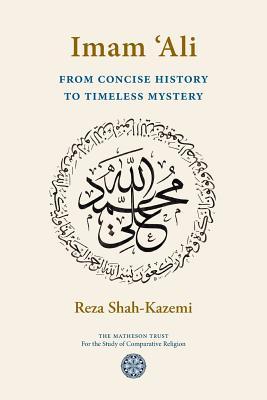The life of 'Ali ibn Abi Talib, fourth caliph of early Islam and fountainhead of Shi'ite and Sufi lineages, 'is both inspirational and controversial: intrinsically inspirational and extrinsically controversial.' These words set the tone for what is an detailed and penetrating view of the figure of Imam 'Ali on various planes, the spiritual and ethical, the individual, the political and social. The author draws a unique portrait in which the powerful spiritual undercurrents of early Islamic history can be discerned at play, and where the sanctified heart of the Imam is revealed as a fulcrum of the harmony between the most diverse and even divergent tendencies.
These spiritual reflections on the life and thought of Imam 'Ali ibn Abi Talib, cousin and son-in-law of the Prophet Muhammad, bring to life what is essential and inspirational in his biography. 'Ali is viewed as the paragon of statesmanship, chivalry and mysticism, a man of action and contemplation, the greatest hero of his age as well as its wisest sage. The interplay between his dramatic outward story and his profound inner story heralds the triumph of the human spirit over the difficulties, tragedies and absurdities which are inevitable in 'the life of this world.'
This exceptional book may be too Shia for some Sunnis, and too Sunni for some Shia, and it may be too political for some, and too spiritual for others, and so its main value lies precisely in a higher perspective where it reveals harmony, in a keen vision of the forces of tawhid, the drive to union, alive at the centre of historical events as in human hearts. It will have a cathartic effect upon the many, Sunnis and Shia alike, who wish to see 'Ali as a fountainhead of unity in Islam, not as a source of division. It makes accessible to both Muslims and non-Muslims the treasures of loving mercy flowing from 'Ali, a global paragon of initiatic wisdom.
